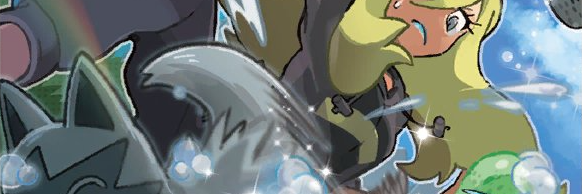
@gaditb (for pURLs that aren’t MEANT to be dereferencable, see `tag:`, `urn:fdc:`, and `urn:uuid:`, among others)
@gaditb it is a useful concept in library science! altho the term of art there is “persistent identifier”. see https://arks.org/
it would also be a useful concept on the fediverse if fedi developers ever bothered to read a book on information science
@gaditb @cpsdqs magnet identifiers are often not dereferencable–they require peers. IPFS presumably as well.
for data: URIs, you do have to qualify “dereferencable” specifically to mean “on the Web”; data: URIs can always be converted into a stream of bytes, but it is an embedded stream, not a stream accessible using the Internet
(consequently, you can’t have two data: URI resources which link to each other)
@gaditb mhm
in practice you can’t have a URL be both frozen and dereferencable but it’s really easy to have a URL which is frozen and not dereferencable!
@gaditb all URIs are structurally immutable…… they are strings………
@aescling @akjcv@types.pl https://en.wikipedia.org/wiki/Open_Game_License#One_D&D
@aescling @akjcv@types.pl well they TRIED to make this happen but
@coriander flannel, but in seahawks colours so you know it isn’t portland
Cool URIs don’t change
https://www.w3.org/People/Berners-Lee/card#i
@aschmitz i have strong feelings about indie haha as someone who comes from the northwest
(and actually i think indie web could have been a great name if the movement itself were better, but i’ve found it to be consistently disappointing personally)
mostly my feeling though is that people have difficulty articulating or capturing the political aspects of what is, in essence, a push back towards the democratization of the internet and a levelling of the field of power
and i think that this difficulty is something that anarchists in general have struggled with across a lot of venues, not limited to just the web
so no, i’m not sure i do have a better label, but that’s kind of what i’m saying
@packetcat my critique with the indie/small web people though is that usually they aren’t even thinking in these terms; they don’t realize that what they’re trying to build is political or has an ideology. so they can’t really consider it or think through its implications.
the open web folks are a lot better; they’ve been pretty political from the start
@packetcat yes i think the fediverse is very good personally, and very much the open web, but you still get people having bad takes like “instance admins are just like landlords”
and those are kind of the two camps as i see it, the kind of people who want admins and moderators, but on an open platform that people can freely join or leave, and people who think any amount of authority or control is too much and everything needs to be a flat structure where everyone is equals
both of these are anarchist positions but they’re very different models of anarchism, and i see the same differences in how people talk about the web
@packetcat open web is good (and i think it has good resonance with other movements i like, like open source, open culture, and open data), but it is slightly different in my mind
“open web”, to me, means:
• a web that anyone can access
• which uses open, standardized protocols that anyone can implement,
• and (ideally) is designed with an eye to human collaboration and community
you can be open while still being big: that’s the Wikimedia foundation projects for example, and a lot of libraries and cultural heritage institutions. when people talk about small or indie web tho, they are typically excluding those things. they mean a web of websites which are owned and operated primarily by individuals rather than organizations, without any clear hierarchy, and free of corporate influence
- Header
- Delinquent (BREAKpoint 98a) by Megumi Mizutani
Administrator / Public Relations for GlitchCat. Not actually glitchy, nor a cat. I wrote the rules for this instance.
“Constitutionally incapable of not going hard” — @aescling
“Fedi Cassandra” – @Satsuma
I HAVE EXPERIENCE IN THINGS. YOU CAN JUST @ ME.
I work for a library but I post about Zelda fanfiction.
For the time being, this is mostly a mirror of <https://status.ladys.computer/>. Want to get in touch? E·mail me!
